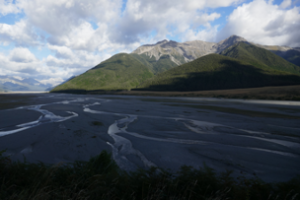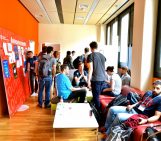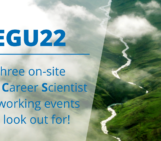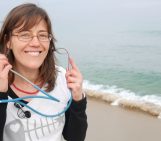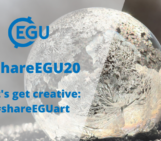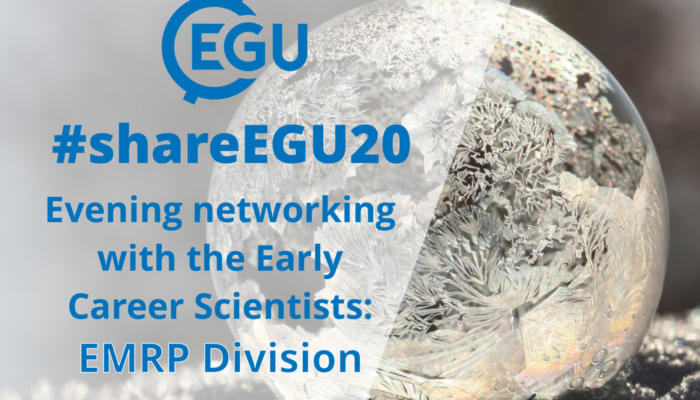
From Monday to Thursday during the week of #shareEGU20, the Early Career Scientists in our various Divisions are going to host a series of evening networking events. Find out more by clicking on the ‘Networking’ session search in the EGU Programme. If you are wondering if these events are for you, check out the Division description by the hosts included below. Every day this week we will be featuring the Divisions who are hosting events, and also adding a description of the other Divisions – in case you come across them in the week and wonder what they are all about.
Monday 4 May 2020 19.00 CEST: Networking with the Early Career Scientists of the EMRP Division – REGISTER NOW!
Earth Magnetism and Rock Physics (EMRP)

Photo by Annique van der Boon (from imaggeo)
The Earth is a dynamical planet: its interiors’ electro-magnetism and physical properties contribute to this exciting property of our planet. The Earth Magnetism & Rock Physics (EMRP) Division addresses the experimental, theoretical and modelling approaches of fundamental solid-Earth and magneto-hydrodynamic processes that extend from the Earth’s surface to the core. A continuous demand for a better understanding of the magneto-hydrodynamic and physical processes responsible for the Earth’s magnetic field spatial and temporal variability is required. Theoretical and experimental aspects of rock physics, environmental magnetism, magnetic anomalies and plate tectonic reconstructions, magnetic polarity reversals, petrophysical assessment throughout physical, mechanical and magnetic properties, electrical conductivity and transport properties of the Earth’s crust and mantle are some of the key topics of research of our ‘living planet’ to which this division is dedicated.
In addition you might come across these Divisions during the week; meet the Geomorphology, Biogeosciences and Earth and Space Science Informatics Divisions!
Geomorphology is the scientific study of land-surface features and the dynamic processes that shape them. The division brings together research on processes that build topography through e.g. the effects of tectonic forces as well as processes that modify the terrain such as weathering, erosion through running water, waves, glacial ice, wind and gravitational forces. Division members also study the impact of humans on geomorphological processes and investigate how geomorphological knowledge can be applied to solve problems of relevance to societies, such as geohazards.

Photo by Florian Heine (from imaggeo)
The Division of Biogeosciences integrates biological, chemical, and physical sciences dealing with processes and interactions within terrestrial and extraterrestrial realms through the current and earlier geological history of Earth and solar system in general. Its focus is beyond the established scientific approaches embracing multi- and interdisciplinary understandings of the biosphere functioning in space and time. In this division, we encourage the participation of scientists across different disciplines, including researchers from the field of applied biogeosciences as well as industrial professionals. Experimental, conceptual, and modelling approaches are welcome.

Photo by Özge Can (from imaggeo)
Earth and Space Science Informatics (ESSI)
As far as informatics and information technology are concerned, the ESSI Division deals with community-driven and multidisciplinary challenges and solutions. This include topics like: data modelling and meta-data standardisation, spatial data infrastructure interoperability, semantics services, quality and uncertainty information encoding and propagation, geospatial data processing, environmental model accessibility, big data management, and data visualisation for scientific discovery.
Due to the ongoing coronavirus outbreak, EGU has made the decision to cancel this year’s physical General Assembly in Vienna and instead offer a partial alternative meeting online, called #shareEGU20. Over the next few weeks in the run up to #shareEGU20, which will be held from the 4 – 8 May 2020, we will be posting regular updates and information about how to get involved, what EGU can offer during this week and how to find each other. We know that there will be many, many questions that people have, and we are learning how to do this right along with you, so please send us your questions over social media or by emailing egu2020@copernicus.org or info@egu.eu. We’re looking forward to sharing EGU with you, online!

